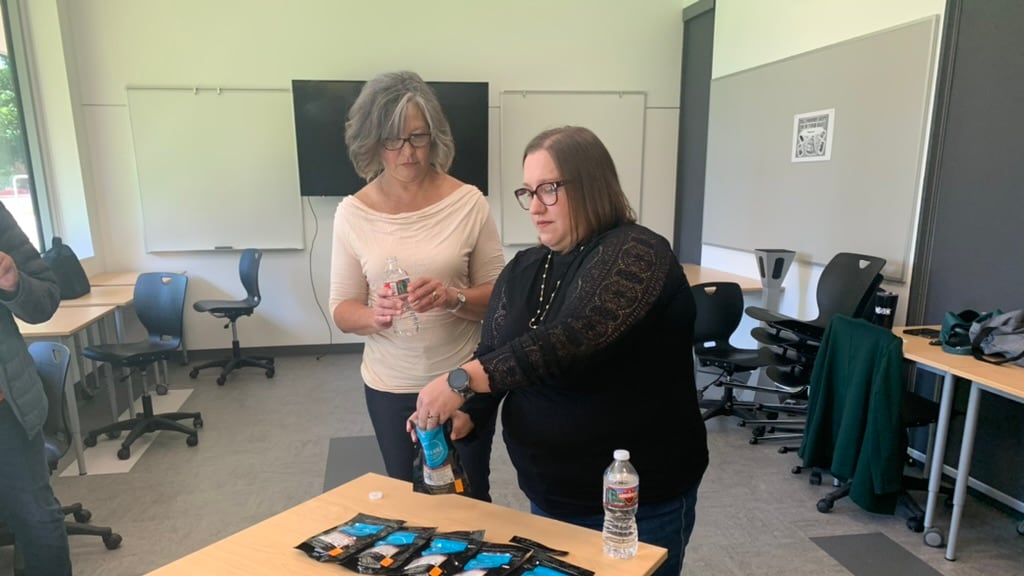No, kids, that’s not a bag of drugs that came home with you from high school registration last month. It’s a bag for disposing of drugs—from expired or unneeded prescriptions to illegal substances of all kinds.
“So often kids start misusing substances by getting into the medicine cabinet at home,” says Mary Stevens-Krogh, Portland Public Schools’ coordinator of substance use supports. “We’re really excited to be able to do something systemwide and not just at one or two schools.”
The school district has handed out 14,000 Deterra drug-disposal kits to students. The 8-inch bags contain a carbon mixture that, when mixed with water, can destroy up to 45 pills, 6 ounces of liquid or six patches. Weed gummies, fentanyl, meth, coke—all can go into the bag (just no needles). The whole kit should then go into the trash can.
Multnomah County, which provided the bags, is trying to get them into as many households as possible, according to Clair Raujol, the county’s addictions prevention coordinator. As an added benefit, the kits provide a natural conversation starter for parents. A QR code on the front links to the website for Big Village PDX, a coalition that aims to reduce substance abuse among youth. Big Village has instructions for using Deterra bags in six languages, among other resources.
“Talking about drug use is a hard topic,” Raujol says. “Sometimes it can be difficult or scary or challenging for families to know what is the right thing to say. Big Village is about empowering families to have those conversations as a prevention strategy for addressing misuse.”
After pouring water into the pouch, though, families should triple-check the seal. At a media demonstration at McDaniel High School last week, the seal came undone and a mixture of water, carbon and expired baby aspirin spilled onto the floor.
“Whoops, don’t do that,” Raujol said, as the presenters scrambled for paper towels. The pouch is plant-based and the contents are non-toxic (except the drugs, of course, until they are deactivated).
According to the Centers for Disease Control and Prevention, more than 142 million opioid prescriptions were filled in 2020. But up to 70% of opioids prescribed for post-surgical use are left over and unused, Big Village says.
Flushing potent drugs down a toilet or sink—while necessary in some circumstances, according to the U.S. Food & Drug Administration—can contaminate the water supply.
Another option for safe drug disposal is the next National Prescription Drug Take Back Day on Oct. 28.

